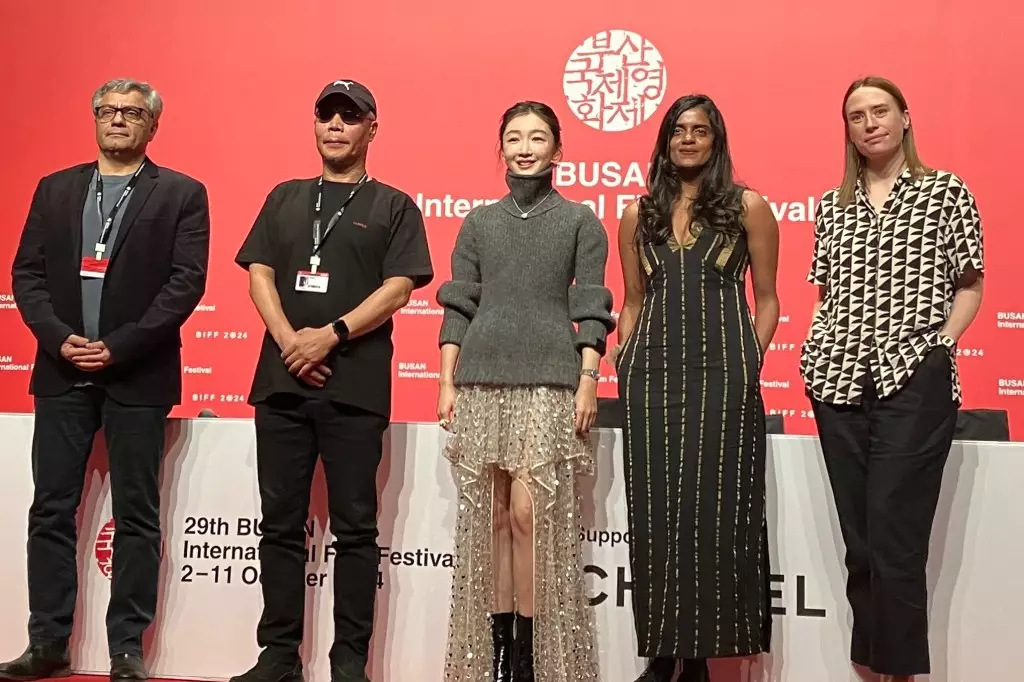In the realm of international cinema, few stories resonate quite like that of Mohammad Rasoulof, a filmmaker navigating the turbulent waters of censorship and exile. His latest work, *The Seed of the Sacred Fig*, has not only garnered critical acclaim but has also become a symbol of hope for creatives grappling with oppressive regimes. Selected as Germany’s submission for the Oscars, the film embodies the resilience and diversity of artistic expression, throwing a spotlight on the plight of filmmakers in Iran and beyond.
Rasoulof’s journey is colored by both triumph and tragedy. For him, success on the international stage has come at a steep personal cost. Following the film’s screening and a Special Award at the Cannes Film Festival, Rasoulof fled Iran on the brink of severe repercussions. He was sentenced to eight years in prison for creating *The Seed of the Sacred Fig* without government authorization. His subsequent exile in Germany serves as a stark reminder of the harsh realities faced by many artists, where the pursuit of creativity can lead to life-threatening consequences.
The selection of Rasoulof’s film by Germany is significant on multiple levels, particularly as it signals a growing international solidarity with creators operating in repressive environments. Rasoulof remarked on the importance of this recognition, emphasizing how it offers guidance and inspiration to fellow filmmakers enduring similar adversities. As government-regulated selections often stifle diverse narratives, Rasoulof’s assertion that *The Seed of the Sacred Fig* stands as an alternative choice underscores a crucial ideological shift in the global cinematic landscape.
This acceptance of Rasoulof’s film highlights the role of foreign support in bolstering artistic voices stifled by their home country’s political climates. Rasoulof noted the collaboration with German producers as vital to the film’s development, symbolizing a bridging of cultures that encourages authentic storytelling despite the constraints imposed by national borders and censorship.
The New Currents jury at the Busan International Film Festival, which Rasoulof presides over, consists of prominent figures from diverse backgrounds, including Korean and Indian cinema. Their varied experiences and insights provide a rich context for understanding the broader challenges faced by filmmakers in Asia today. Korean director Lee Myung Se highlighted the ongoing crisis in Korean cinema, where the pandemic’s aftershocks continue to affect creative output. He expressed a desire to discover films that are true to the art form, merging narrative depth and stylistic innovation.
Zhou Dongyu, a Chinese actress with a long-standing affiliation with the Busan festival, echoes these sentiments. Her optimistic view of the potential for revitalized cultural relations between Korea and China in 2025 reflects a renewed hope for cinematic collaboration that transcends nationalistic divides. In a world increasingly fractured by political discord, these artistic dialogues are critical to fostering understanding across cultures.
Moreover, the commentary by Kani Kusruti on the vibrant landscape of Indian cinema adds another layer to this discussion. Despite controversies over Oscars submissions, Kusruti emphasized the richness of creativity in India, showcasing a dynamic range of styles and voices. This celebration of cinematic diversity presents a counter-narrative to the constraining pressures imposed by regimes seeking to control artistic output. As Kusruti pointed out, filmmakers are pushing boundaries, experimenting in ways that reflect the evolving nature of society itself.
The New Currents competition at Busan stands as a crucial platform for emerging filmmakers in Asia, offering cash prizes and invaluable exposure to burgeoning talents. The recognition of films that embody the struggles and triumphs of up-and-coming directors is expected to cultivate a richer tapestry of stories for global audiences. Celebrating the first or second features of these directors not only nurtures their craft but also underscores the importance of diverse narratives in an increasingly homogenized film landscape.
As we observe these developments within the context of the Busan film festival, it is evident that artistic expression transcends mere entertainment; it holds the power to ignite dialogue, inspire hope, and challenge societal constraints. The stories borne from hardship, exemplified by Rasoulof’s experiences and those of his fellow jurors, reveal the tenacity of the human spirit in its quest for freedom of expression.
*The Seed of the Sacred Fig* and the prominence of voices like Rasoulof’s, Kusruti’s, and Zhou’s illustrate a burgeoning solidarity among artists. Their collective contributions hint at a promising horizon for global cinema, where stories can flourish unhindered, and diverse perspectives are welcomed and celebrated in the universal language of film.

Leave a Reply